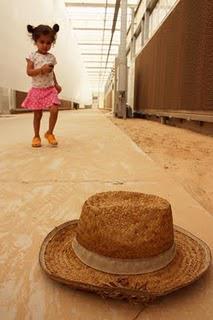 When I first came to Dubai for a little look-see with my husband, a weekend break to decide if we could ever live here, we were taken around by a French Relocation Expert. This was in 2007, when Dubai was heaving in every imaginable direction - up, out, down, in. The hopes and dreams were even higher than the skyscrapers they were designing, and every man and his dog wanted their piece of the Dubai pie. The population was greater than it is now, and everyone was living in half the number of dwellings. Laborers were working 14 hours a day in 47ºC heat, then being shipped home to the labor camps in cattle trucks. House maids were being paid 500AED a month to work 16 hours, 7 days a week. Beautiful women were flying in from all over the globe to try and land themselves a Sheikh, prostituting themselves, knowing that just a small hand-out could set them up for life. Corruption was rife - the options to recieve an invitation to buy land were being sold for millions, because Cityscape product was sold out in a matter of minutes. Everyone was flipping and tripping, morals slipping, taking their turn on the harem-scarem magic carpet ride.
When I first came to Dubai for a little look-see with my husband, a weekend break to decide if we could ever live here, we were taken around by a French Relocation Expert. This was in 2007, when Dubai was heaving in every imaginable direction - up, out, down, in. The hopes and dreams were even higher than the skyscrapers they were designing, and every man and his dog wanted their piece of the Dubai pie. The population was greater than it is now, and everyone was living in half the number of dwellings. Laborers were working 14 hours a day in 47ºC heat, then being shipped home to the labor camps in cattle trucks. House maids were being paid 500AED a month to work 16 hours, 7 days a week. Beautiful women were flying in from all over the globe to try and land themselves a Sheikh, prostituting themselves, knowing that just a small hand-out could set them up for life. Corruption was rife - the options to recieve an invitation to buy land were being sold for millions, because Cityscape product was sold out in a matter of minutes. Everyone was flipping and tripping, morals slipping, taking their turn on the harem-scarem magic carpet ride.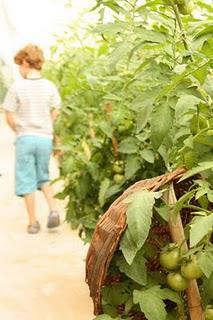 Nadira had told us we must "swallow our snake" to live in Dubai. I think it must be a French saying that does not translate well, but I will always remember it. She said that this was a land of golden opportunity for the ones who were already blessed with opportunity, but it was a den of iniquity for those who were not. We would love it here, but only if we walked around with our eyes closed. (She was shortly thereafter sacked, probably to blissfully return to the land of the banned burqa and 7-hour work days)
Nadira had told us we must "swallow our snake" to live in Dubai. I think it must be a French saying that does not translate well, but I will always remember it. She said that this was a land of golden opportunity for the ones who were already blessed with opportunity, but it was a den of iniquity for those who were not. We would love it here, but only if we walked around with our eyes closed. (She was shortly thereafter sacked, probably to blissfully return to the land of the banned burqa and 7-hour work days)She was right. People like me would die in this environment if we did not have the luxuries we receive to prop us up. We are simply not meant to live in the desert. And so, if we decide to stay here, we must wear the guilt. First, we must accept that our environmental impact is unforgivable, but unavoidable. Halas - it is done. Second, we merge our values with the local ones - we take a maid, we stop double-taking when we see workers in the sun in mid-summer from our air-conditioned SUVs. Things will improve Insha'Allah, and it becomes something that has nothing to do with us.
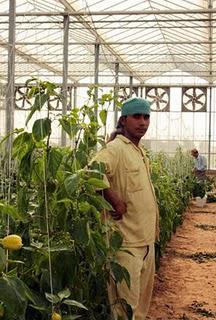 I've already touched on this in my 'Despicable Me' post. Don't think for a moment that because I am a Jumeira Jane, I am walking around oblivious to the greater problems of this world, just because I blog about free range eggs and organic farmers markets. It's far from the truth. I think about my greater transgressions daily, but the more I think, the more helpless I feel, the worse I feel for doing nothing. Then my own life interrupts me. I have to pick up the kids, do the shopping, help with homework, give a swimming lesson, cook the dinner, put the kids to bed, call my mom. By the time I think about the world again, it is time for a glass of wine, and that helps me forget all about it. Snake swallowed.
I've already touched on this in my 'Despicable Me' post. Don't think for a moment that because I am a Jumeira Jane, I am walking around oblivious to the greater problems of this world, just because I blog about free range eggs and organic farmers markets. It's far from the truth. I think about my greater transgressions daily, but the more I think, the more helpless I feel, the worse I feel for doing nothing. Then my own life interrupts me. I have to pick up the kids, do the shopping, help with homework, give a swimming lesson, cook the dinner, put the kids to bed, call my mom. By the time I think about the world again, it is time for a glass of wine, and that helps me forget all about it. Snake swallowed.A place where I can make decisions on my impact, whether it be global or local, is what food I provide my family with. And so when I was given the opportunity to visit the Abu Dhabi Organic Farm (the retail outlet is named Al Mazaraa), I excitedly packed Lion into the car for the journey. I had read this article recently, as well as having a comment from an anti-local reader on my Farmers Market post, and I wanted to see what the deal was, ask the questions, do the math, and make my own decisions. Not only that, I wanted my son to see the impact and method of farming in the desert.
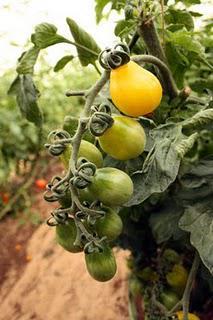 The visit did not disappoint. The farm is about 45 minutes inland of Abu Dhabi city, and just over an hour from Dubai. The entire farm is about 60ha, and consists of 15 Shade houses of 1500m², 12 Cool houses of 1300m², and two nurseries of 480m² - the rest of the land is cultivated in fields or set aside for livestock and poultry.
The visit did not disappoint. The farm is about 45 minutes inland of Abu Dhabi city, and just over an hour from Dubai. The entire farm is about 60ha, and consists of 15 Shade houses of 1500m², 12 Cool houses of 1300m², and two nurseries of 480m² - the rest of the land is cultivated in fields or set aside for livestock and poultry.To do my experiment, I chose tomatoes, because they lose vitamins quickly when transported over large distances and time, and besides, the ones from the UAE smell and taste amazing. They are also the Al Mazara'a farm's biggest seller. This is what I discovered:
- 1m² of land in a cool-house contains 2.5 plants and provides 33kg of tomatoes at fruition
- They require 3.75L (1.5L per plant) of water per day for 7 months = 787.5L (tomatoes are an annual stock - the plant dies, and seeds are collected and reserved for the following season)
- The water is entirely desalinated stock - not ground water
- It takes on average 0.2 MJ per Litre to desalinate water in this region, so the total energy required to produce the water is 156MJ
- The sheds are cooled to a constant of 24 degrees - the cooling is not needed for the entire growing season.
- The cooling would have a usage of approximately 1000MJ/m2/year. Therefore, let's say 700MJ for the tomatoes to produce their seasonal harvest of 33kg.
- The petrol required for 33kg of freight is a minimum of about 1.3L/100km
- It is 5158km from Amsterdam to Dubai and so 67L of petrol is required.
- Each L of petrol produces 36MJ of energy, and so therefore, the petrol required to transport the tomatoes would produce 2412MJ of energy
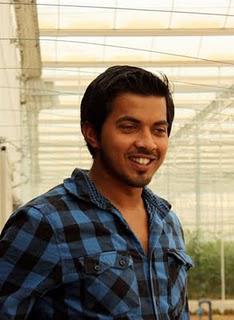
Shaheer, our guide
Hai Carumba! That's leaving the light on for over 46 days. Just for enough tomatoes for one person to eat for about 4-6 months. And this is not taking into consideration the extra time the produce sits in transport or in-store, refrigerated and/or under lights before we get it in our shopping trolleys. (Yes, tomatoes are practically green when they come off the vine when destined for long-scale shipping) There is a great article here on the pitfalls of transporting fresh fruit and vegetables over long distances.The article I mentioned previously that de-bunks the local-is-good theory suggests we bring our food from Egypt, which is about 2400 Km away, so you could halve that cost of transport, but it's still considerably more than the figures I came up with for desalination* - however, the main agricultural area is the Nile Delta and despite being the wettest area in Egypt, the entire area is irrigated (it borders the Sahara desert) with - you guessed it, a large amount of desalinated water.
In the end, I have decided that there is nothing I can ingest here that is environmentally sound, except maybe camel milk and lobster (even date palms are irrigated). So, like the eggs, I must make a decision that is not based on the environment - what is good for my family. And you can't get much better than local and organic - for taste AND for health.
--------------------------------------------
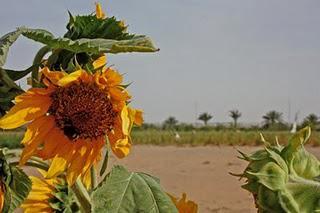
The retail arm delivers to Jumeirah Lake Towers on Mondays between 12- 3pm. Orders must be received before 4pm on Saturdays. Contact [email protected]
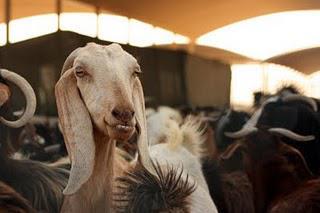
Jar Jar Binks
The Abu Dhabi Organic Farm produce tomatoes, capsicum and chillies, lettuce and herbs, cucumber, mulberries, strawberries, cauliflower (in the chilled houses) and spring onions, okra, zucchini, squash, potato, beans, eggplant, watermelon, dates, passionfruit and more (under shade or in open field). There is also over an acre dedicated to free-range poultry - Chickens, Turkeys, Quail, Ducks and Guinea Fowl. Both meat and eggs are available in the Al Mazaraa store. Other livestock includes cattle, goats, camels and sheep, for the production of milk, laban, and mutton. We met a lovely goat that we called 'Jar Jar Binks', that we really hope is a milk goat, not one destined for the pot. They also have bees for the production of their award winning honey - which is expensive (I bought the middle of the range for 75aed from the market), but amazing stuff that is completely worth the money.
* I did google searches on energy usage for flight, desalination and air-conditioning, and averaged all similar results from the first two pages. If this was a newspaper, I would have kept the links, but it's not, and I'm completely over documenting it. If you don't believe me, do the research yourself. If you have a source of more exact information, I would be thrilled to see it, as the information available on the WWW is broad and vague, I am not educated in this field, and I am not able to completely trust the numbers. Please leave a comment below and if your information proves beyond doubt to be correct and different to what I have found, I will change my post.
Leave me a comment and make my day...
